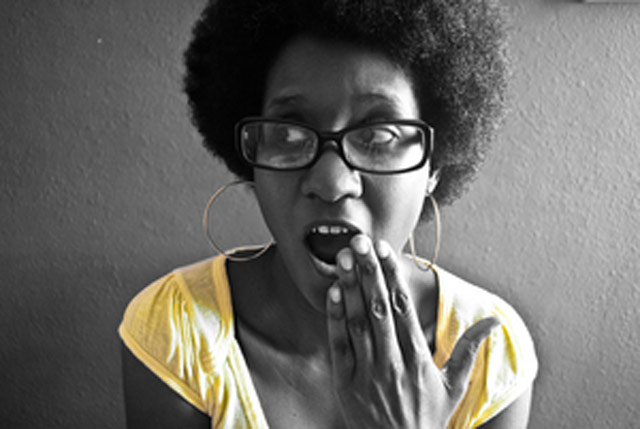Throughout June, I’ll be chatting with queer and trans artists of color about their work and their inspirations. Some are well known, others aren’t. But they’ve all got something to say about how the path toward liberation starts in the creative mind.
For Mia McKenzie, Black Girl Dangerous is both a political and a creative starting point. The website Mckenzie founded and leads as editor-in-chief is a collection of LGBT voices of color that go against the grain. They’re proudly fat, resiliently disabled and politically unbowed. And they’ve cultivated an online space for queer and trans folks of color to write, and exist, uncensored.
McKenzie, as founder, is at the center of that space. But BGD, as she calls it, is just one of her creative outlets. The Philly-born Bay Area resident is also an award-winning fiction writer whose debut novel "The Summer We Got Free" won a 2013 Lambda Literary Award. Below, she talks about the centrality of writing in her life, and how she’s learned to manage her quirks to get things done.
When did you start writing fiction?
I can’t remember exactly when I started writing, but I definitely did it when I was a really little girl. I remember my sisters and I would make newspapers and we would write our own stories and articles. I would write little stories when I was in elementary school, and that was probably when I was about 7. And then, in sixth grade, I remember my teacher was very focused on writing stories and binding our own little books, and that’s when I got really, really into it.
What motivated you to start writing about queer communities?
I write about what’s interesting to me, what I love, what’s in my world and what’s in my life. I write because I love reading. When I was a little kid, I wanted to be a movie star [laughs]. And then I got stage fright when I was 13 and decided that a solitary writing life was for me. I think it comes from a love of character and a love of language, and a particular love for the stories of queer black people. I just love those stories, I’m so interested in them and am so deeply moved by them.
When I was younger writing stories, I felt that I was good at it and felt exceptional. Who doesn’t want to feel exceptional? Writing gave me that and it still gives me that. Once I got to college and was introduced to more women of color writers, by women of color teachers, I was able to really begin finding my own voice. That allowed me to start telling stories that really came deeply from me and my experience and the experiences of my people.
What’s the hardest thing about your craft?
Fiction writing is really hard. Writing a novel was one of the hardest things I’ve ever done. Just the sheer amount of work was unbelievable. It’s hard for me to describe it, but it’s so much work. The writing itself isn’t hard–the words, the characters, the ideas come to me pretty easily. But for me it’s really a matter of being disciplined about time, and that’s the hardest part.
It’s a constant struggle for me. My little ADD brain is all over the place all the time. The thing I’m learning about myself over the years is, I’m accepting that about myself. I’m not a person who’s going to be able to make a plan far out and follow it. I embrace my last minuteness. I know it’s going to get done. The stories want to come, they want to be told.
What makes you proud?
I’m really proud of my books: my novel, "The Summer We Got Free" and my Black Girl Dangerous anthology. I feel like together those two books represent years of my writing and I look at them and I see my life in them, I see my soul in them, I see my heart in them. I’m proud that I’ve written boldly–I hope–about a radical, black, queer experience in a way that’s had such an impact.
If you could talk with a queer icon from the past, who would it be? And why?
That’s a really hard question because I feel like there are so many amazing people, but I’m going to choose a trans icon named Marsha P. Johnson because, wow. Just to be around that kind, lovely energy and to be around someone who had so much love in her heart and so much courage. But also to hear her stories and get details that nobody knows, to laugh, cry and commiserate with someone who I admire so much because of her vulnerability as well as her strength. She’s someone who blazed a trail for me and all queer and trans people of color, really. We’re all indebted to her, whether we know it or not. Stonewall was a riot, not a parade, and she was right there fighting on the frontlines. We owe everything to her as a trans woman of color who fought that fight.
